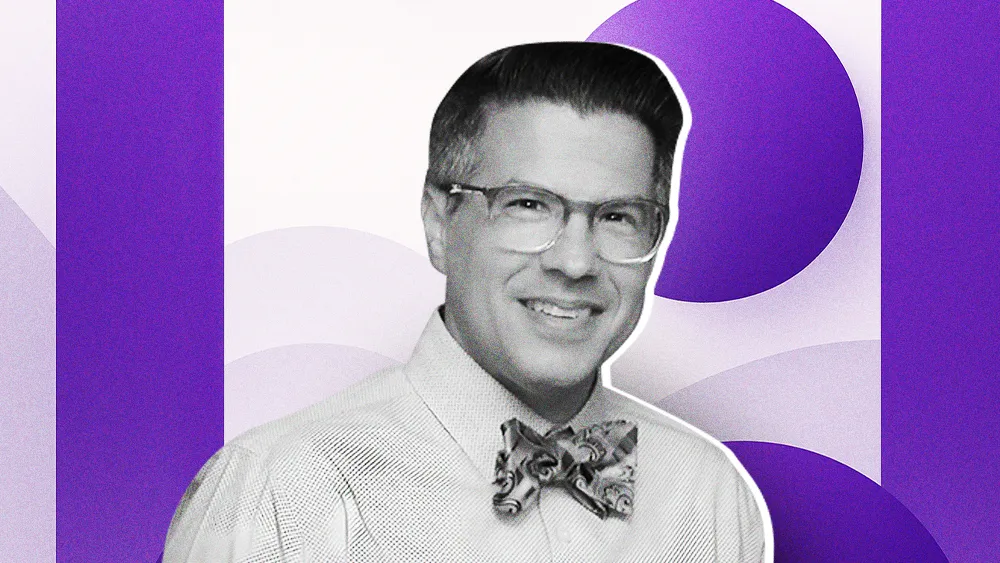


Andy DeLaO, Chief Strategy and Marketing Officer at GE Healthcare, explains the importance of taste and problem-solving over AI features for effective marketing strategies.
He recommends a scientific approach to marketing with automation for routine tasks to foster a culture of innovation where teams can focus on more creative, strategic, and high-level work.
The future of marketing will be driven by human creativity and taste, not algorithms, DeLaO concludes.
NVIDIA's CEO recently argued that a lack of innovation fuels job loss, not AI advancement. While the comment sparked controversy, one thing is undeniable: in marketing, innovation is powered by taste. AI can write copy, crunch data, and optimize campaigns in seconds. But it cannot intuit what feels "right," what makes people lean in, or what pushes an industry forward.
Today, taste is cultural fluency, future vision, and the willingness to challenge what has been done before. And when AI’s efficiency meets human taste, the result is work that's even faster and more unforgettable than before.
As the Chief Strategy & Marketing Officer at GE Healthcare, Andy DeLaO operates at the intersection of technology and human health. But his authority on the subject comes from a rare fluency in both worlds. With a career that started in clinical science and moved into marketing, DeLaO's background informs his evidence-based conviction: AI is for automation, but taste is for transformation.
"Marketing's essential job is to make a change, and taste is what lets us challenge the status quo in a meaningful way," said DeLaO. He sees marketing as a driver of transformation, judged by the change it creates.
Get to the point: DeLaO believes marketing's primary function is to solve a customer's problem. Far too often in healthcare, we discuss products and features without asking the real questions: How does this solution actually solve a problem? How does it make a real change in the world?"
A human-centric approach: At the HLTH 2023 conference, for instance, DeLaO and his team introduced the CareIntellect for Oncology solution. But instead of listing AI features, they focused on its ability to solve physician burnout. The approach yielded surprisingly positive results. Even financial buyers seemed more interested in solving problems like "cognitive burden" and "labor shortages" than in straightforward ROI.
AI's primary role should be as an efficiency engine, DeLaO explains. For example, he describes how his team created over 35 custom GPTs to automate rote research and data pulls. Now that AI is handling the daily tasks, DeLaO and his team are free to focus on higher-level work. "AI gives me back the time to think creatively, and more importantly, to focus on connection." With the routine automated, what remains is the human core.
Let doctors be doctors: For doctors, that means returning to the patient relationship that drew them to medicine in the first place. According to DeLaO, that human-centric focus is what defines the story his team tells about their products. "We don't launch AI products for the sake of being AI-powered. We launch them to solve a problem. We connect information across the patient journey so physicians can get back to what they went to school for, which is caring for people."
But big ideas only matter if they create impact, DeLaO says. That's why he insists on testing every campaign against real results, not just creative ambition.
The scientific method: To make innovation repeatable, DeLaO built a culture that treats every campaign as a learning opportunity. Here, he fosters innovation by building AI literacy, empowering experimentation, maintaining a customer focus, and operationalizing learning. "Every campaign we launch is a hypothesis. We put it into the marketplace and are very quick to ask, 'What did we learn?' Based on that learning, we decide what to do more of, what to stop, and what to change."
Creativity, meet control: For instance, when faced with pressure to do more with less, DeLaO's team adopted the language of the business to prove its direct impact on revenue. By eliminating outside agencies and bringing creative in-house, they have complete ownership of execution and measurement. Ultimately, the move resulted in stronger engagement and clearer business outcomes, showing that creativity backed by control can deliver measurable returns.
Ultimately, DeLaO believes the future of marketing will not be decided by algorithms but by the human ability to create meaning. "Jensen Huang is spot on. AI will have an economic and a jobs impact, but the real opportunity is for us as humans to elevate our work. We must continue to be creative, push the envelope, and lean into our taste. A focus on taste is how we will always have a role in the economy."
Because taste cannot be codified, trained, or explained, DeLaO concludes. Human creativity remains the lasting edge, the quality that turns efficiency into meaning and ensures marketing continues to shape change, not simply measure it. "The core truth is simple. If you cannot define it, you cannot explain it. And if you cannot explain it, AI cannot learn it."